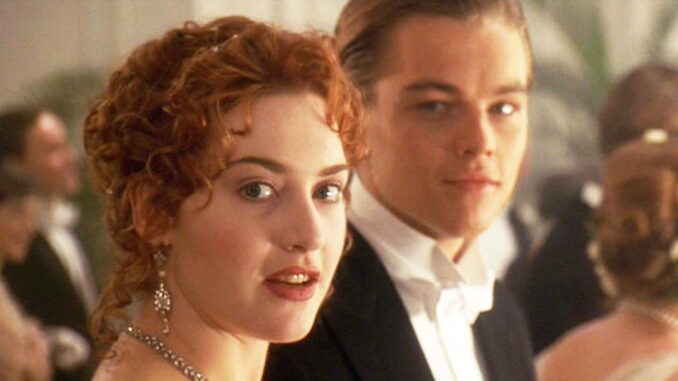
The "Alright, Alright, Alright" That Sank a Titanic Opportunity: Matthew McConaughey's Rejection of a Director's Request
The story of Hollywood is paved with what-ifs, with actors haunted by roles they turned down, and casting directors forever pondering the parallel universes where their choices went another way. In the tapestry of these cinematic "almosts," the tale of Matthew McConaughey and the RMS Titanic stands out as a particularly intriguing thread. The narrative whispers of McConaughey, then a burgeoning star fresh from the legal thriller "A Time to Kill," being considered for the iconic role of Jack Dawson, a role that would ultimately catapult Leonardo DiCaprio to global superstardom. But, as the story goes, McConaughey not only rejected the role, he did so after refusing a direct request from the director himself. This rejection, and the alleged reason behind it, illuminates the complex interplay of ambition, artistic integrity, and the capricious nature of Hollywood success.
On the surface, McConaughey as Jack seems an unlikely pairing. His Texan drawl and rugged charm feel a world away from DiCaprio's sensitive, almost ethereal portrayal of the penniless artist. Yet, early images exist of screen tests alongside Kate Winslet, revealing a chemistry that, while different, was undeniably present. Reports suggest McConaughey felt the role lacked the depth he was searching for, that the romantic narrative overshadowed the historical tragedy. He was, after all, on a trajectory toward more challenging, dramatic roles. To jump into a period piece, a love story destined for teen-idol worship, might have felt like a detour from his intended path.
However, the pivotal moment in this narrative revolves around a request made by James Cameron, the notoriously demanding director of "Titanic." According to some accounts, Cameron, recognizing McConaughey's potential but also his reservations, asked him to perform the famous "I'm flying!" scene at the ship's bow with Kate Winslet. The intention was likely to gauge his commitment to the role and, perhaps, to see if he could embody the kind of youthful exuberance Cameron envisioned for Jack. McConaughey, it's said, refused.
This refusal, though seemingly small, speaks volumes. It could be interpreted as a simple act of artistic self-preservation. Perhaps he didn't feel the scene, in isolation, did justice to the character he was considering. Perhaps he believed that performing such a pivotal moment out of context would be disingenuous to the project as a whole. Or, perhaps, he simply wasn't comfortable jumping through hoops to secure a role, even one as prestigious as Jack Dawson.
Whatever the reason, McConaughey's rejection of Cameron's request likely played a significant role in the casting decision. In Hollywood, perception is everything. To refuse a director's request, especially one as established as Cameron, could be seen as a sign of inflexibility, a lack of commitment, or even a touch of arrogance. Directors often seek actors who are not only talented but also collaborative, willing to take direction and contribute to the overall vision. McConaughey, in this instance, seemingly prioritized his own artistic instincts over pleasing the director, a bold move with potentially significant consequences.
The impact of this decision on McConaughey's career is undeniable. He didn't become the heartthrob icon that DiCaprio became, but he continued to carve out his own unique path. He transitioned from rom-com leading man to critically acclaimed dramatic actor, culminating in his Oscar win for "Dallas Buyers Club." In retrospect, perhaps McConaughey's rejection of "Titanic" was a defining moment, a conscious choice to prioritize artistic integrity and long-term career goals over the immediate allure of mainstream success.
The story of Matthew McConaughey turning down Jack Dawson is more than just a casting footnote; it's a microcosm of the complex decisions that shape actors' careers. It highlights the tension between commercial appeal and artistic fulfillment, the power dynamics inherent in Hollywood relationships, and the potential consequences of following one's own creative compass. It's a reminder that success comes in many forms, and sometimes, the roles we turn down can be just as important as the ones we accept in defining who we are as artists. And perhaps, in the grand narrative of Matthew McConaughey's career, refusing that request from James Cameron was not a rejection, but a crucial step on the path to becoming the actor we know and admire today, an actor who can confidently say, "Alright, alright, alright," even when facing the potential wreckage of a cinematic opportunity.